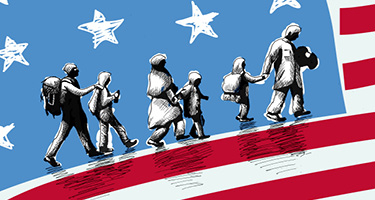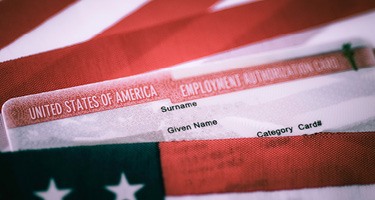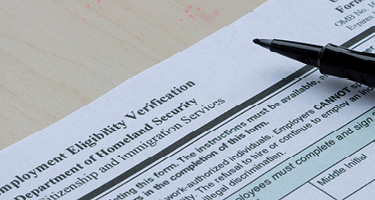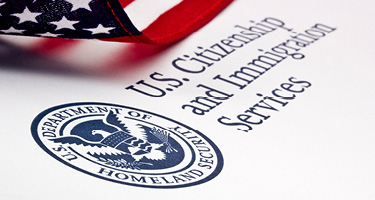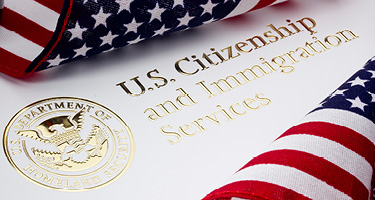“He was my husband—I thought he could do anything he wanted to me. I didn’t know I could ask for help.” - Varsha, from India.
Being in an abusive relationship is already a nightmare. When you add language barriers, cultural challenges and immigration issues, it may seem like the nightmare will never end. Many times, immigrant survivors of domestic violence don’t know what their rights are and that there can be ways to gain independence through immigration relief. When immigration is used as a tool of control, it is counterintuitive to think about it as a way to freedom. The Violence Against Women Act (VAWA) and U Status are two ways that immigrant survivors of domestic violence and extreme cruelty can gain immigration status.
Under U.S. immigration law, a U.S. citizen can apply for their non-U.S. citizen spouse to gain immigration status (“getting a green card”). In 1994, though, Congress enacted VAWA, realizing that foreign nationals were staying in unsafe relationships because the abusive U.S. citizen held all the power. The abuser could threaten deportation or say they would withdraw their sponsorship if the foreign national spouse was “out of line.” VAWA, though, removes this power dynamic. When the foreign national can show the marriage to the U.S. citizen was bona fide, that they lived together, that they themselves possess good moral character and that they were subject to extreme cruelty, U.S. Citizenship and Immigration Services will accept a self-petition for a green card. VAWA doesn’t require physical violence—financial, emotional and mental abuse can all qualify someone for VAWA.
Applicants for VAWA often wonder what the impact will be on their spouse. Under 8 U.S.C. § 1367, the answer is none. This is not a criminal proceeding, and the U.S. citizen will never be contacted about this process. Also, the U.S. citizen cannot ask USCIS for any information about their spouse’s case. The evidence in the case is all provided by the foreign national. A personal statement, psychological evaluation, medical records and support letters can be sufficient to meet the extreme cruelty standard.
VAWA isn’t just for women. Men can certainly qualify for this type of relief. It’s also not limited to spouses (or former spouses). VAWA can be used by parents who are abused by their children or by adult children abused by their parents. Under current processing times, a VAWA green card case takes about three years.
Abuse isn’t confined to relationships between a U.S. citizen and a foreign national, though. If the abuser is a non-immigrant visa holder or lacks status, or if the couple isn’t legally married, U status is a good option to explore. It is a much longer overall process (closer to 15-20 years), but during much of the wait, the applicant can have a work permit, allowing them to obtain an SSN and a driver’s license and live life out of the shadows.
U status was created to increase cooperation between law enforcement and the immigrant community. If someone lacks immigration status, they aren’t likely to contact the police for help. However, U status aims to change that. To qualify for U status, the applicant must show they are a victim of a “qualifying crime” as defined by 8 CFR § 214.14 (typically a violent crime), that they cooperated with law enforcement and that they also suffered extreme physical or mental harm. Domestic violence and sexual assault qualify immigrants for this type of immigration relief.
The law enforcement requirement is, sometimes, the hardest part of these cases. Applicants do have to report the crime at a minimum—and this is a huge risk for them. However, even with a police report, law enforcement agencies have the discretion to sign or not sign the required certification form. Some agencies have blanket policies to never sign these requests, and others have restrictive guidelines. This leaves the victim in a bit of a game of roulette where the chances of success depend on the location of the crime. Still, though, many law enforcement agencies are learning about U status and see it as a tool to protect and serve the immigrant community.
For both VAWA and U status, there are special provisions that allow the applicant to apply, even if they entered the U.S. without inspection or even if they have prior removal orders.
Abuse is difficult for anyone to navigate and escape. However, in the immigrant community, additional layers of complexity are present. There are options, though. There are options for gaining status without a U.S. citizen petitioner, and there are options for those who survive domestic violence but whose abuser lacked status. No one should remain in an unsafe relationship just because of their lack of legal status or fear of immigration.

Tracie Morgan is the founder of Hope Immigration, LLC in Atlanta, Georgia. In over ten years, her firm has helped over 1500 people and families achieve their immigration goals. Her firm focuses on family and humanitarian immigration, with a particular niche working with immigrant survivors of violent crimes and human trafficking.


